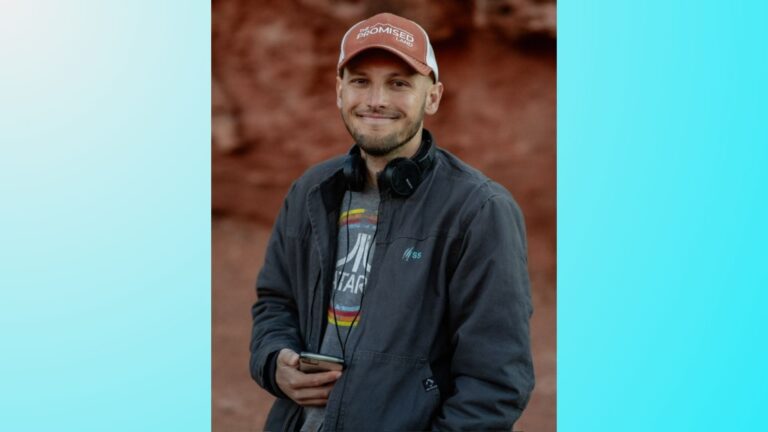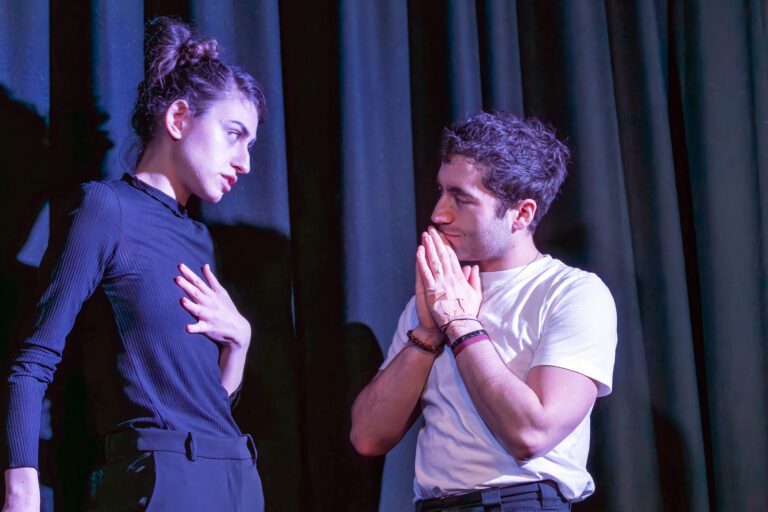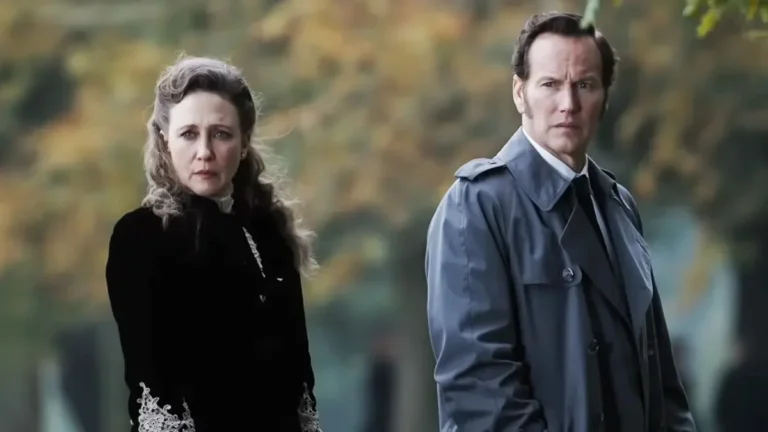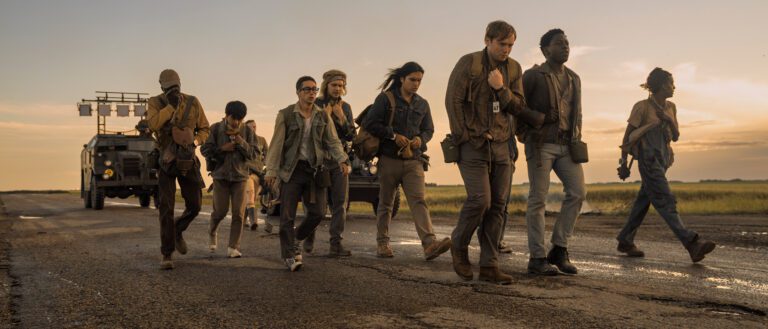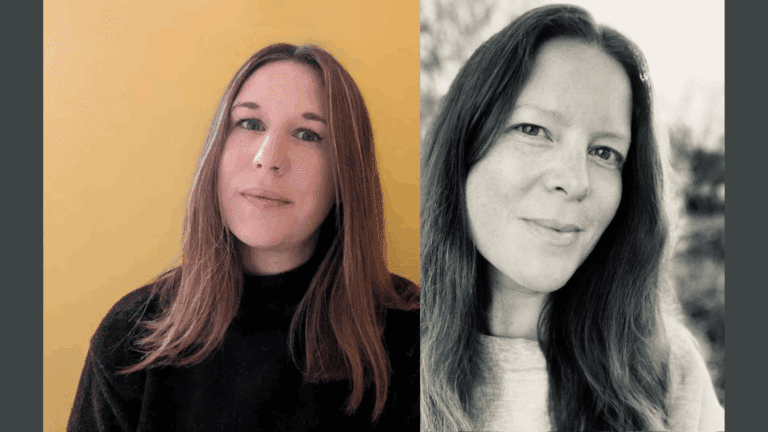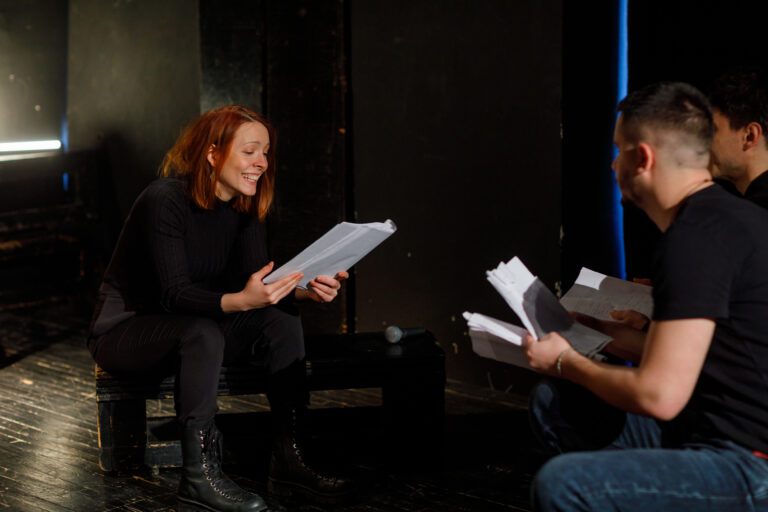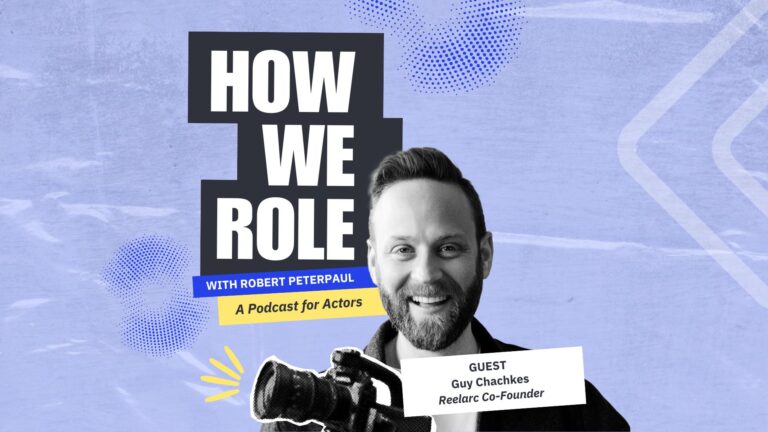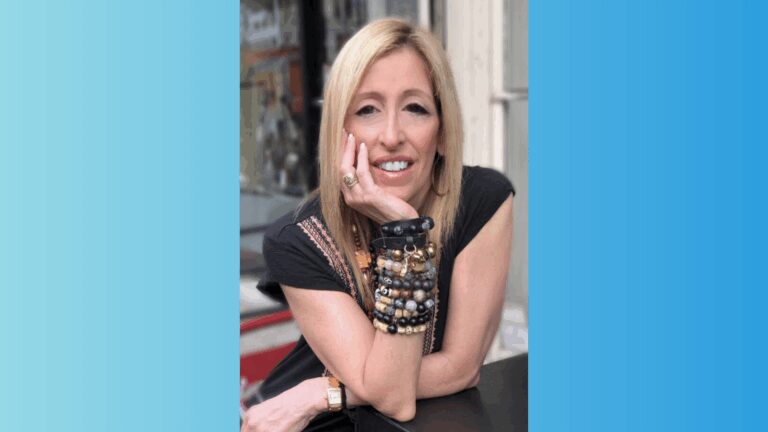If you have seen even a single episode of Prime Video’s biblical TV series The Chosen, about the life of Jesus Christ, you know it’s far from a comedy. And yet, it’s because of that show that we have the new sitcom The Promised Land. The Chosen’s first assistant director, Mitch Hudson, was approached by the show’s producers to create a comedic biblical adaptation, this one focused on Moses and the Jews after their Exodus from Egypt. The result is a mockumentary in the style of The Office that stars several Chosen actors, and has plenty of laugh-out-loud moments. Hudson wrote and directed all six episodes of the first season, and has big plans for the show, should it find an audience.
One hopes it will, as the future of television could very well lie in independent productions like these, and the more they succeed, the better it will be for other creators looking to follow in the show’s footsteps. The Promised Land premieres October 1 on YouTube, with a new episode dropping every week until the first season finale on November 14. Hudson chatted with us from Atlanta.
Key Insights
- Mitch Hudson, former assistant director on The Chosen, created The Promised Land as a biblical comedy inspired by The Office.
- The show was independently financed and produced under Hudson’s company Milk and Honey, giving him full creative control.
- Casting focused on Middle Eastern actors to bring authenticity and realism to the portrayal of Moses, Aaron, Miriam, and their community.
Where’d the show come from? I know The Chosen is definitely not a comedy.
No, it is certainly not a comedy (laughs). It’s definitely a very different show tonally, but a similar show in terms of the fact that we were trying to portray Scripture in a way that is accurate to what’s on the page, but also relatable to a modern-day audience. Of course, our difference is that our comedy dial is turned up quite a bit by comparison.
The idea came from one of our producers who brought it to me and said, “Hey, I would love it if you could try to make The Office, but [about] Moses. What do you think? Can you write a pilot, see if we can do something with it?” So I jumped into Scripture. I was rereading Exodus, trying to figure out what would be a starting place, and when I reread the story of Jethro, it all clicked for me.
How so?
I realized we have this story where Moses’ father-in-law, who he loves, comes to town and basically tells him, “Hey, the way that you’ve been leading is not right. You have to use other people to help you lead this nation that does not want to be led.” For me, that was it. It’s a show about leadership, about being the lower-level managers of this massive enterprise, which is the nation of Israel, which is on their journey to the Promised Land. That’s where it all clicked for me.
Did you guys do this independently?
The six episodes we did, we have no studio attachment other than our company, Milk and Honey. We do not have a major Hollywood network or studio funding us. It was all independently financed, which is great, because it meant that we could just make the show that we wanted to make, which is awesome.
Let’s talk about the cast. There are a bunch of people here who first showed up in The Chosen.
Yes, but that wasn’t the case when we made the pilot. I made the pilot in the fall of 2022, after season 3 of The Chosen. By that point, Wasim No’mani, who plays Moses in our show, had been on The Chosen as a character named Yanni, so I knew him, and that was really exciting, because I didn’t know he was going to audition.
The rest of the actors actually started on our pilot, and then when I was showing it to Dallas Jenkins, the creator of The Chosen, just to get his feedback, he said, “Hey, your cast is awesome. I want you to cast some of these guys [from] The Chosen.” So yeah, first it was just Wasim, and then more and more crossover started to happen.
Like Wasim, the cast is all made up of people of color. Was this a conscious decision? Or did it just work out that way?
I really wanted to distance our show from a lot of other portrayals of Moses, especially Charlton Heston, who is, of course, grand and awesome. But he also, to me, is a white guy from America, so I wanted to cast Middle Eastern actors to portray this story. Because again, with this being a documentary-style show, it’s really all about feeling real, like we just landed in the situation, as opposed to it being a Hollywood production. That meant I had to get actors who look like they are from this region of the world, and that was a big part of the process. We were exclusively only casting actors with Middle Eastern heritage, so that it felt like a consistent and believable portrayal of these characters.
What was it about Wasim that made him Moses to you?
What’s so great about him is that he’s funny, but only accidentally. I knew that Moses would set the tone, while also not being the funniest character. Most of our side characters are the funny ones, especially Majed Sayess as Aaron. Wasim has such a leadership quality to him, a charisma that comes through, but also is not someone that you immediately would think that’s a leader. He needed Aaron. He didn’t believe in himself. That, to me, just came so through with Wasim’s portrayal of a guy who is trying his best, is maybe not naturally equipped for this, but wants to do a good job. I don’t think anyone captured that truth the way that Waseem did.
Since you mentioned Majed, let’s talk about him and Shereen Khan, as Moses’ brother Aaron and sister Miriam, who are both hilarious. Both of them were very natural, being funny without trying to sell it.
That’s the thing about casting for this show — it needed actors who understood that you don’t have to try to be funny to be funny. You actually need to try not to be funny. You have to try to be real. Shereen totally understood the assignment, and Majed is just so naturally funny and charismatic, you can understand why a Moses portrayed by Wasim would want Majed’s Aaron be the face of things, because he’s got a lot more chutzpah. All we know from Scripture is that Miriam was a strong woman who spoke up when she could, and actually, in Numbers, ends up eventually standing up to Moses, which we’ll get to eventually in the show. I love Shereen. She makes it look easy.
When I saw Tucker Smallwood, I said, “Wait a minute, is that the guy from Seinfeld playing Jethro, Moses’ father-in-law?”
(Laughs) It’s true! I knew I wanted to find someone who had more experience than most of our cast to ground this show. We were reaching out to some great actors who had been in various sitcoms over the years, and when I saw Tucker in an episode of My Name Is Earl playing a policeman, that sold it for me. I was watching the scenes with him, and I said, “That’s it. That’s a guy that Moses would look up to, but also be a little bit intimidated by.”
Since you mentioned the book of Numbers, what’s the plan moving forward?
It all depends on how it goes with season 1, but I have a plan for for 40 episodes. Forty is this recurring number for Moses and Israelites. Forty years, 40 days and nights on the mountain. I want to make 40 episodes and a movie, and I have plans for all of it, and I’ve already written season 2. If enough people watch season 1, then I think we’ll get a chance to make more.
What will be the deciding factor? Is there a number of viewers in mind?
I think if we can prove that there’s an audience who really wants to see this show, and see more of it, we can go to private investors and offer them more. It’s not so much a benchmark as it is about engagement. If people really engage with it, like they have already with the pilot, I think that would secure us what we need.
I would love to see churches, synagogues, people spreading it around, because we are such a grassroots show, and word of mouth will really help. I was actually talking to another Jewish fan of the show who said it was shown to him by someone else, and that they were about to show it to a lot more people and tell everyone about it, which I thought was the most flattering compliment I could receive.
Key Takeaways
- The Promised Land blends biblical storytelling with modern mockumentary humor to make ancient stories relatable.
- Independent productions like this showcase the potential for creators outside of Hollywood’s studio system.
- Audience engagement and grassroots word-of-mouth will determine whether the show continues beyond its first six-episode season.
You may also like:

